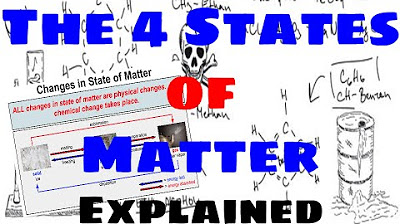MATERI A. KETERKAITAN ANTAR SILA PANCASILA - FASE F (KELAS XI)
Summary
TLDRIn this educational video, Mr. Indra explains the interconnectedness of the five principles of Pancasila, Indonesia's foundational ideology. He discusses how each principle embodies different values, such as religious, humanitarian, unity, democracy, and the welfare of the people. The video outlines how these principles work together, with each one supporting and reinforcing the others. Mr. Indra emphasizes the inseparable nature of the principles, highlighting how they guide the nation toward unity, democracy, and collective prosperity. The session concludes by stressing the importance of maintaining the correct order and relationship between these principles.
Takeaways
- 😀 The five principles of Pancasila are closely related and cannot be separated from each other.
- 😀 Mr. Muhammad Hatta, Indonesia's first vice president, emphasized the unity between the five principles of Pancasila.
- 😀 Each principle in Pancasila has distinct values: religious, humanitarian, unity, democratic, and welfare values.
- 😀 The first principle, based on religious values, is linked to humanitarian values in the second principle, promoting compassion among people.
- 😀 The first and third principles combine religious values with unity, urging Indonesians to maintain national peace and foster love for their country.
- 😀 The second and third principles promote equality and status for all people in Indonesia, eliminating divisions in society.
- 😀 The third principle, based on unity, connects with the fourth principle on democracy, where Indonesian democracy is based on deliberation and consensus.
- 😀 Indonesians are encouraged to participate in defending the nation, prioritize deliberation over personal interests, and avoid division.
- 😀 The relationship between the fourth and fifth principles connects democracy and the welfare of the people, emphasizing that development should benefit all citizens.
- 😀 The five principles of Pancasila form a unified whole, and their order cannot be altered, with each principle having a fixed position.
Q & A
What is the main topic of Mr. Indra's video?
-The main topic is the relationship between the five principles of Pancasila and how they are interconnected.
Who emphasized the close relationship between the five principles of Pancasila?
-Mr. Muhammad Hatta, the first vice president of Indonesia, emphasized that the principles have a very close unity and cannot be separated from each other.
What are the five values associated with each principle of Pancasila?
-The first principle has religious value, the second has humanitarian value, the third has unity value, the fourth has democratic value, and the fifth has the value of people's welfare.
How are the first and second principles of Pancasila related?
-The first principle (religious value) combined with the second principle (humanitarian value) emphasizes compassion and care among human beings as creations of God.
What does the relationship between the first and third principles signify?
-The first principle's religious value combined with the third principle's unity value signifies that as God’s creations, Indonesians must maintain unity and foster love for the homeland.
What is the connection between the second and third principles?
-The second principle’s humanitarian value combined with the third principle’s unity value means that all humans in Indonesia should have equality and there should be no divisions in the nation.
How do the third and fourth principles relate to each other in Indonesia’s context?
-The unity value of the third principle and the democratic value of the fourth principle highlight that Indonesian democracy is based on deliberation and consensus, prioritizing collective interests over personal ones.
What is the significance of the relationship between the fourth and fifth principles?
-The fourth principle’s democratic value and the fifth principle’s value of people’s welfare show that development and decisions in Indonesia should result from deliberation and aim to improve the welfare of all people.
Why is it important that the principles of Pancasila remain in their original order?
-The principles are structured in a specific order because each principle builds upon the previous one, and their meanings cannot be exchanged without losing the intended unity and coherence of Pancasila.
What is the overall conclusion about the relationship between the five principles of Pancasila?
-The five principles form a unified and inseparable whole, where each principle complements the others, ensuring a balanced foundation for values such as religion, humanity, unity, democracy, and welfare.
Outlines

此内容仅限付费用户访问。 请升级后访问。
立即升级Mindmap

此内容仅限付费用户访问。 请升级后访问。
立即升级Keywords

此内容仅限付费用户访问。 请升级后访问。
立即升级Highlights

此内容仅限付费用户访问。 请升级后访问。
立即升级Transcripts

此内容仅限付费用户访问。 请升级后访问。
立即升级浏览更多相关视频

The Four States of Matter - Explained

Lab Equipment - Explained

3. Gr 11 Life Sciences - Population Ecology - Theory 3 Mark Recapture Method

4. Gr 11 Life Sciences - Population Ecology - Worksheet 1

PENJASKES KELAS X - SOFTBALL

Introduction to Culture [AP Human Geography Review Unit 3 Topic 1]

Menentukan Mr ( massa molekul relatif )
5.0 / 5 (0 votes)
